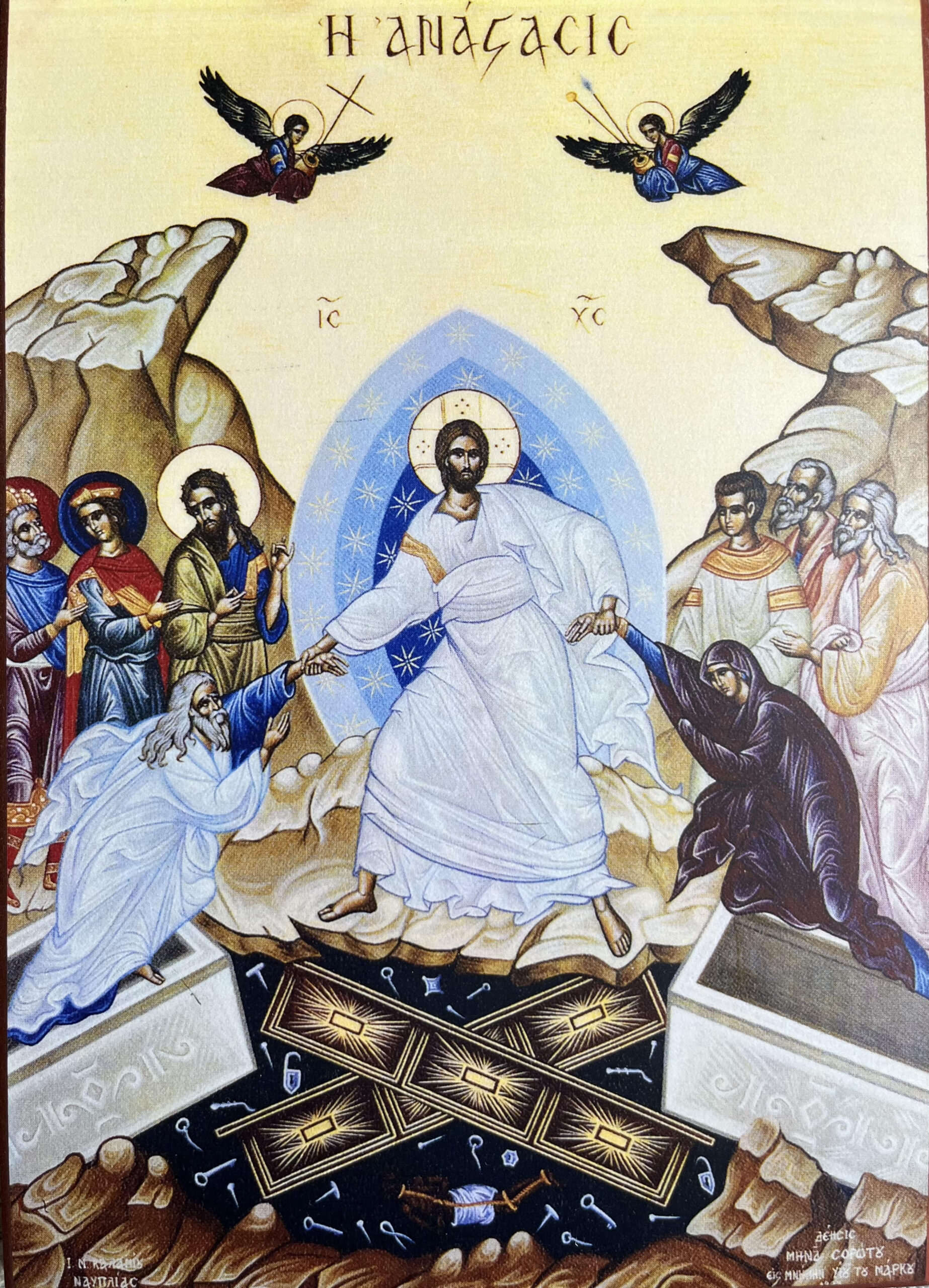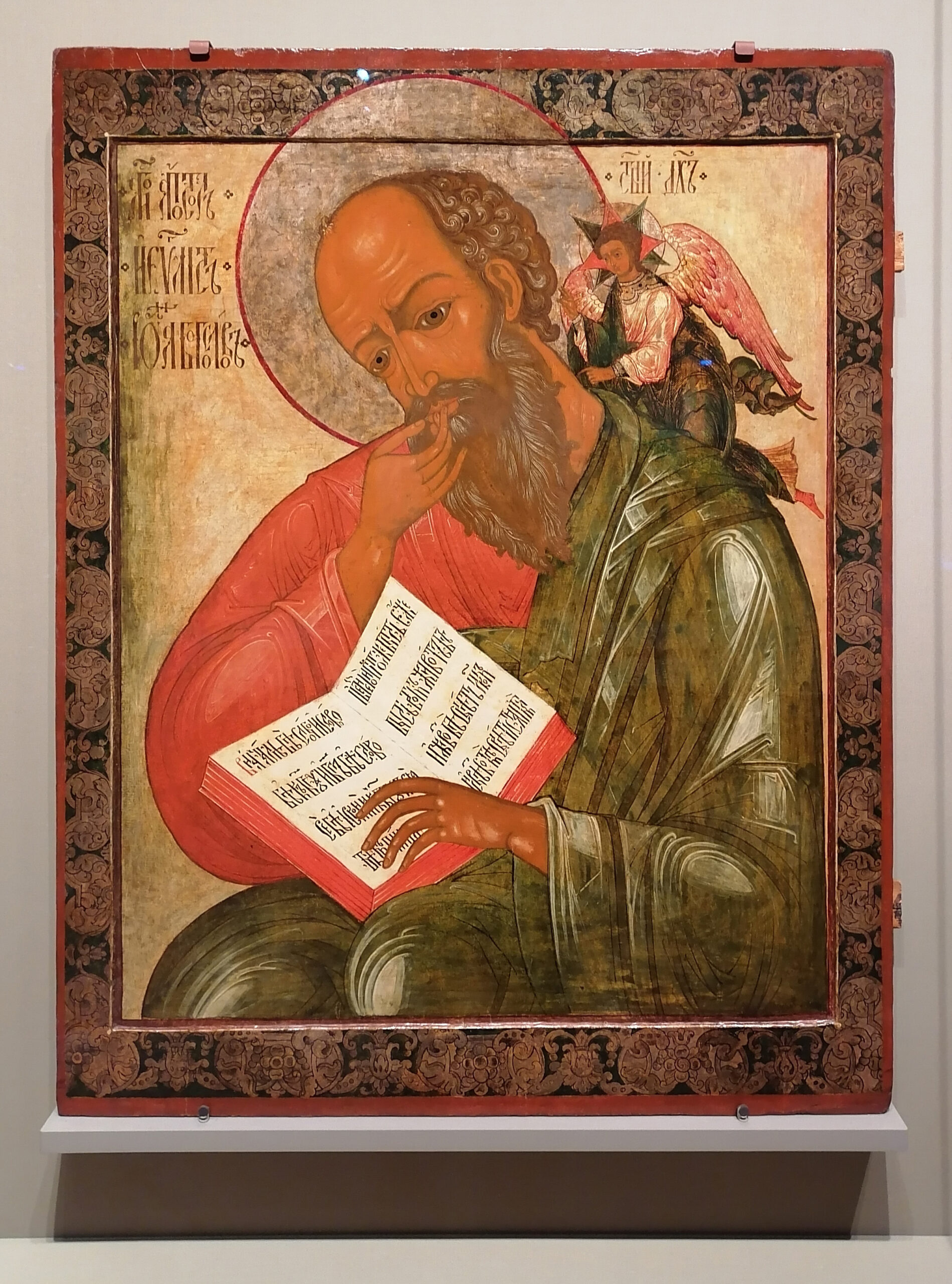So shall the sinners perish from the presence of the God; and the righteous shall rejoice.
The myrrh-bearing women, at early dawn drew near to the Tomb of the Giver of Life, and found an Angel seated on the stone. And speaking to them, he said: “Why do you seek the Living among the dead? Why do you mourn the Incorruptible one amid corruption? Go, and proclaim it to His Apostles.”
~Praises, Pascha, Trans. by Fr. George Papadeas
—
But on the first day of the week, at early dawn, they went to the tomb, taking the spices which they had prepared. And they found the stone rolled away from the tomb, but when they went in they did not find the Body. While they were perplexed about this, behold, two men stood by them in dazzling apparel; and as they were frightened and bowed their faces to the ground, the men said to them, “Why do you seek the Living among the dead? Remember how He told you, while He was still in Galilee, that the Son of Man must be delivered into the hands of sinful men, and be crucified, and on the third day rise.” And they remembered His words, and returning from the tomb they told all this to the eleven and to all the rest.
Luke 24: 1-8
Christ is Risen!
The connection between the hymns and the Scriptures in our Orthodox hymnology is just brilliant. We have to remember that the hymns reinforced the Scriptures, which were inaccessible to people who couldn’t read, and that was just about everyone. While the account of the Resurrection from the Gospel of Luke and the question of “Why do you seek the Living among the dead?” is not heard often, the above hymn is sung many times throughout the Paschal season, reinforcing this story in the minds of the faithful.
This question “Why seek the living among the dead?” was posed by the angels to those who went to the tomb early on the morning after the Sabbath. The angels remind them that Christ said He would rise from the dead after three days. It was now the third day, so why would they expect to find Jesus among the dead? In other words, why are you seeking the thing that you were told would be incorrect? Why come to the tomb that you were told would be empty? The Gospel says that they then remembered His words, like “oh yes, He did say that the tomb would be empty.” And then they went to spread the good news to the eleven disciples and the rest.
This question, “why seek the living among the dead?” has some relevance to us today. No, we are not like the women going to the tomb early in the morning, but we are seeking things. We seek love, security, fame, fortune, reputation, good health, pleasure and lots of other things in life. We seek truth and relevance. Some of the things we seek after are not really necessary—one doesn’t need to have fame and fortune to have a great life. In fact, those things are kind of “dead things” because we can’t take them to the grave with us. We seek meaningful things amongst things that in the long term will not be meaningful. We seek things that are “living” among things that are “dead.”
We also seek Christ. Yet there seems to be a constant tension or temptation to do things that are dead, while at the same time seeking the living God. We need to ask ourselves “what things that we have around us will eventually die?” The answer is, pretty much everything. We will throw away clothes, get rid of cars, discard plants that have died, etc. There is actually nothing that I have right now, even family and close friendships, that I’ll have when I die. All I will have then is my faith and a life record of acts of faith. This is why we can’t seek the living God solely around the things that are going to die. We have to seek Him around the things that will live—love, truth, kindness, decency.
Imagine the scene of the angel at the tomb talking to you the next time you are making an ungodly choice—and we all make them—imagine the angel asking you, at that moment, “why are you seeking the living among the dead? Why are you, as a Christian, somehow following after Christ by doing the exact thing that Christ tells us not to do. This reminds me of something Saint Paul wrote in Romans 7, where he wrote: “For I do not do what I want, but I do the very thing I hate. . .For I do not do the good I want, but the evil I do not want is what I do.” (Romans 7: 15, 19) If we indeed are seeking the living God, then we must do the things that bring us “life” rather than destruction.
They, who were with Miriam came before dawn, and finding the stone rolled away from the Tomb heard from the Angel: “Why do you seek as man among the dead, Him, Who dwells in Light eternal? Behold the shroud of the grave; make haste and proclaim to the world, that the Lord is risen, putting to death, Death; for He is the Son of God, the Savior of the world. (Hypakoe, Paschal Liturgy, Trans. by Fr. George Papadeas)
Let us not seek the living among the dead, or seek Christ in the things that are not Christ-like. Let us seek Christ by doing what is Christ-like. Let us seek the living God amongst the things that make us truly alive.

